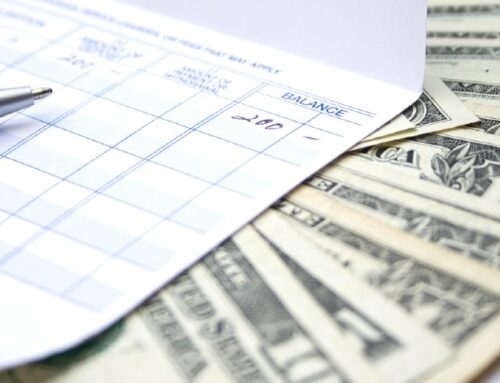Maintaining a healthy checking account balance is a key element of financial well-being. Yet, many people find themselves grappling with various fees that can erode their hard-earned money.
In this article, we’ll delve into the common fees associated with checking accounts and provide practical advice on how to steer clear of them. By understanding overdraft fees, maintenance charges, and other hidden costs, you can take control of your financial journey and minimize unnecessary expenses.
Overdraft Fees: The Sneaky Culprit
One of the most common pitfalls for checking account holders is the dreaded overdraft fee. This fee occurs when you spend more money than is available in your account, pushing it into negative territory. The consequences? A hefty overdraft fee that can quickly add up.
How to avoid overdraft fees
- Set up account alerts: Many financial institutions offer alerts that notify you when your balance is low.
- Link to a savings account: Connect a savings account to your checking account for automatic transfers in case of a shortfall.
- Use overdraft protection: Many institutions offer overdraft protection that will give you options for avoiding transactions that will cost you.
Maintenance Charges: Keeping Your Account Afloat
Some financial institutions impose maintenance charges on checking accounts, a fee for the upkeep of your account services. These charges can range from a few dollars to a more significant amount, eating into your balance over time.
How to avoid maintenance charges
- Choose the right account: Research and opt for accounts that offer fee waivers based on minimum balances or other qualifying criteria.
- Direct deposit: Many financial institutions waive maintenance charges if you have a regular direct deposit into your account.
- Negotiate with your financial institution: If you’re hit with maintenance charges, don’t hesitate to negotiate with your financial institution for a waiver or reduction.
ATM Fees: The Price of Convenience
Withdrawing cash from an out-of-network ATM can result in fees from both your financial institution and the ATM owner. These fees may seem small individually but can accumulate quickly.
How to avoid ATM fees
- Stick to in-network ATMs: Plan your cash withdrawals at ATMs affiliated with your financial institution to avoid additional fees.
- Use cashback options: Opt for cash back when making purchases with your debit card at grocery stores or other retailers to bypass ATM fees.
Paper Statement Fees: A Surprising Expense
Receiving paper statements in the mail might seem like a courtesy, but some financial institutions charge a fee for this service. In today’s digital age, there are more cost-effective and eco-friendly alternatives.
How to avoid paper statement fees
- Go paperless: Choose electronic statements to save money and reduce environmental impact.
- Check for fee waivers: Some financial institutions offer fee waivers if you meet certain criteria, such as maintaining a minimum balance or having a certain number of transactions.
Account Closure Fee: The Price of Saying Goodbye
Closing a checking account might not be an everyday occurrence, but some financial institutions charge a fee for this service. Understanding the account closure fee is essential to avoid any surprises when you decide to part ways with your current financial institution.
How to avoid account closure fees
- Research terms and conditions: Familiarize yourself with your financial institution’s policies regarding account closure fees.
- Plan ahead: If you’re considering closing your account, ensure all outstanding transactions are cleared to prevent any unforeseen fees.
Inactivity Fee: When Silence Isn’t Golden
An inactivity fee is charged when there’s little to no activity in your account over an extended period. While this fee might catch you off guard, being aware of it can help you avoid unnecessary charges.
How to avoid inactivity fees
- Understand the terms: Be aware of your financial institution’s policy on inactivity fees, including the duration of inactivity before charges apply.
- Make occasional transactions: Periodically deposit or withdraw a small amount to keep your account active.
Excessive Transactions Fee: Crossing the Line
Some financial institutions limit the number of transactions you can make from your checking account each month. Exceeding this limit may result in an excessive transaction fee. Knowing your transaction limits can save you from unexpected charges.
How to avoid excessive transactions fees
- Monitor your transaction count: Stay informed about the number of transactions allowed in your account.
- Consider a different account type: If you frequently exceed transaction limits, explore accounts that offer higher transaction allowances.
Insufficient Fund Fee: When the Well Runs Dry
Similar to overdraft fees, insufficient fund fees occur when you attempt a transaction without enough money in your account. Being mindful of your balance can help you avoid these costly fees.
How to avoid insufficient fund fees
- Set up balance alerts: Receive notifications when your account balance drops below a specified threshold.
- Opt for overdraft protection: Connect a savings account or explore overdraft lines of credit to cover potential shortfalls.
Wire Transfer Fee: Sending Money at a Cost
Financial institutions often charge fees for both incoming and outgoing wire transfers. Whether you’re sending money domestically or internationally, understanding wire transfer fees is crucial to managing your finances efficiently.
How to avoid wire transfer fees
- Explore alternatives: Consider online payment platforms or peer-to-peer transfer services for cost-effective alternatives.
- Negotiate with your financial institution: Some financial institutions offer fee reductions or waivers for valued customers, so don’t hesitate to inquire.
Check and Card Ordering Fees: Customization at a Price
Ordering new checks or debit/credit cards may incur fees, especially if you choose customization options. Being aware of these fees can help you decide when and how to order new checks or cards.
How to avoid ordering fees
- Use standard options: Opt for standard designs rather than personalized ones to save on ordering fees.
- Look for promotions: Some financial institutions offer periodic promotions with waived fees for check and card orders.
International Transaction Fees: Navigating Global Transactions
When using your debit card for international transactions, additional fees may apply. These fees can include currency conversion charges and international transaction fees. Understanding these costs can prevent unwelcome surprises while traveling.
How to avoid international transaction fees
- Choose fee-friendly cards: Look for debit or credit cards that offer favorable terms for international transactions.
- Inform your financial institution: Notify your financial institution of your travel plans to ensure your card isn’t flagged for suspicious activity during your trip.
Trust Arizona Central Credit Union With Your Account
Keeping a close eye on the fees associated with your checking account is crucial for financial health. By understanding the ins and outs of overdraft fees, maintenance charges, ATM fees, and more, you can take proactive steps to minimize or eliminate these costs.
At Arizona Central Credit Union, we’re up front with our fees. We can save you from account-draining fees as we help you achieve your financial goals. Explore our wide variety of checking and savings account options that can help you start building your future. If you have any questions about opening an account, contact us online or call (866) 264-6421.




